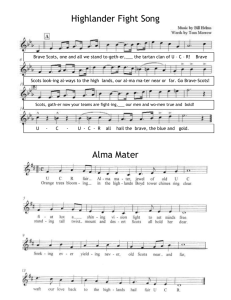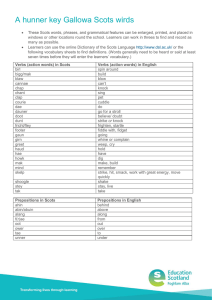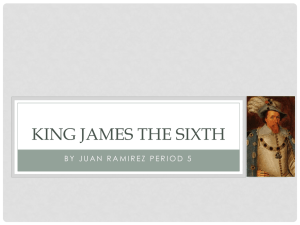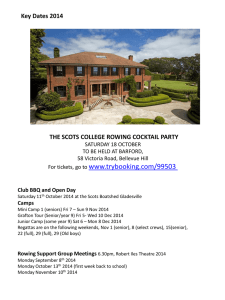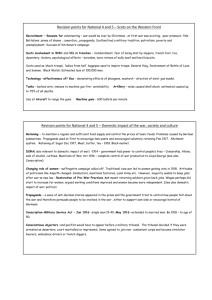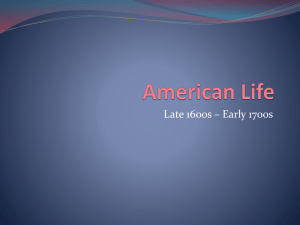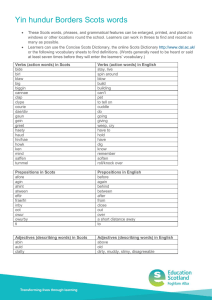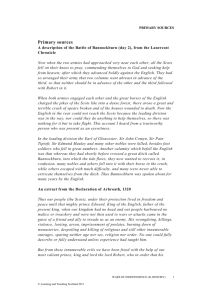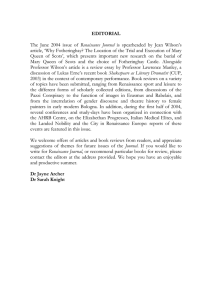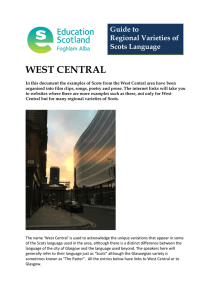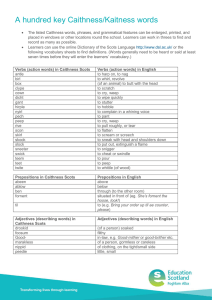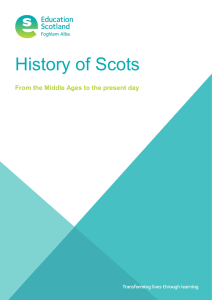A hunner key Scots wirds
advertisement
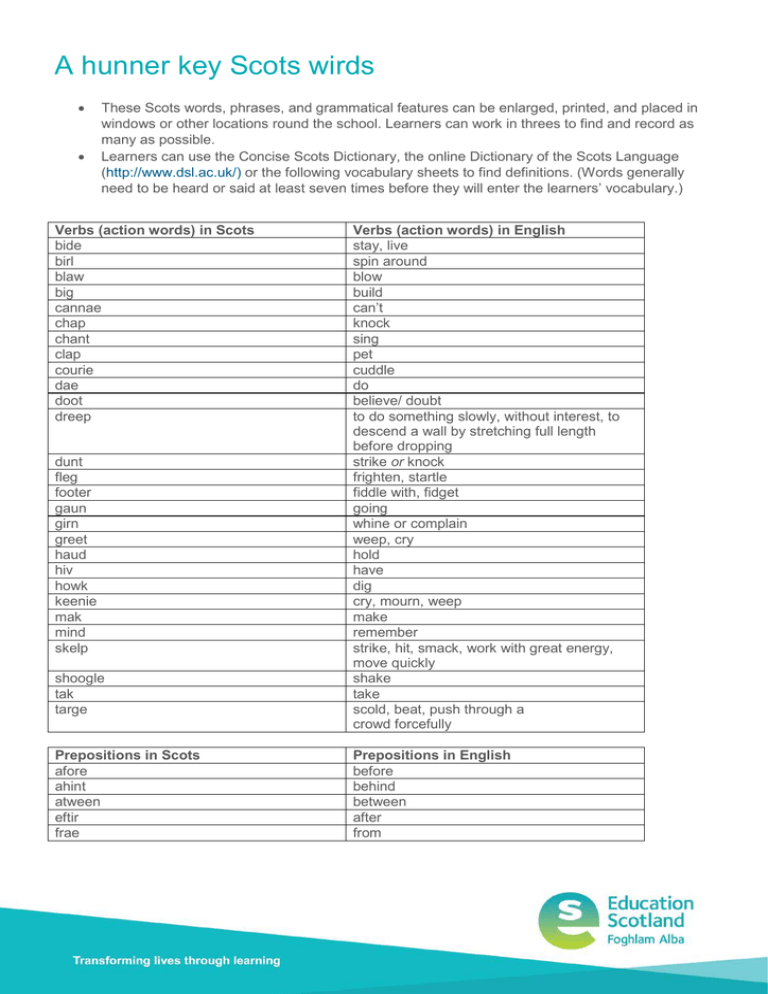
A hunner key Scots wirds • • These Scots words, phrases, and grammatical features can be enlarged, printed, and placed in windows or other locations round the school. Learners can work in threes to find and record as many as possible. Learners can use the Concise Scots Dictionary, the online Dictionary of the Scots Language (http://www.dsl.ac.uk/) or the following vocabulary sheets to find definitions. (Words generally need to be heard or said at least seven times before they will enter the learners’ vocabulary.) Verbs (action words) in Scots bide birl blaw big cannae chap chant clap courie dae doot dreep dunt fleg footer gaun girn greet haud hiv howk keenie mak mind skelp shoogle tak targe Prepositions in Scots afore ahint atween eftir frae Transforming lives through learning Verbs (action words) in English stay, live spin around blow build can’t knock sing pet cuddle do believe/ doubt to do something slowly, without interest, to descend a wall by stretching full length before dropping strike or knock frighten, startle fiddle with, fidget going whine or complain weep, cry hold have dig cry, mourn, weep make remember strike, hit, smack, work with great energy, move quickly shake take scold, beat, push through a crowd forcefully Prepositions in English before behind between after from oot ower tae overby out over to a short distance away Adjectives (describing words) in Scots auld clatty crabbit daft drookit fantoosh feart gallus glaikit haiverin hackit haunless mad muckle peelie-wally scunnered shilpit sleekit stoorie tapsalteerie thrawn towtie unca/unco wee Adjectives (describing words) in English old dirty, muddy, slimy, disagreeable bad tempered foolish, stupid drenched fancy, elaborate afraid cheeky stupid chatty ugly clumsy angry big sickly, not well fed up feeble sly dusty upside down stubborn, determined, headstrong subject to recurrent minor illness/ailments strange, unfamiliar small Nouns (naming words) in Scots ba wean byre cloot claes craitur the day freen gloamin guff glaur hoose heid lassie laddie the morra tatties kye Nouns (naming words) in English ball child cowshed cloth clothes creature/person today friend dusk smell mud house head girl boy tomorrow potatoes cattle Transforming lives through learning toon watter wife, wifie yowe town; farmstead water woman (married or not) ewe Pronouns (short words that replace nouns) in Scots it ma yon wha whit oor, wir ye, youse (pl) Pronouns (short words that replace nouns) in English it my that who what, which our you Numbers in Scots yin twa fower hunner Numbers in English one two four hundred Adverbs in Scots doon gey Adverbs in English down very, somewhat, rather now carefully, cautiously noo canny-like Exclamations/ Greetings Ach away! Hoo’s it gaun? No sae bad! exclamation of surprise How are you? Not bad at all! Some features of Scots grammar and speech Negative forms of verbs are created by adding ‘na’ at end – ‘canna’, ‘mustna’ etc. Present participles end in ‘in’ – never ‘ing’ (greetin, haiverin, slaiverin), so there is no need for an apostrophe. Scots uses older, short vowel sounds in words like ‘hoose’, ‘moose’ and ‘coo’ (like Norwegian) instead of ‘house’, ‘mouse’ and ‘cow’ (like English). In Scots, the plural of ‘year’ is ‘year’, not ‘years’. E.g. ‘siven year ago’. Transforming lives through learning
